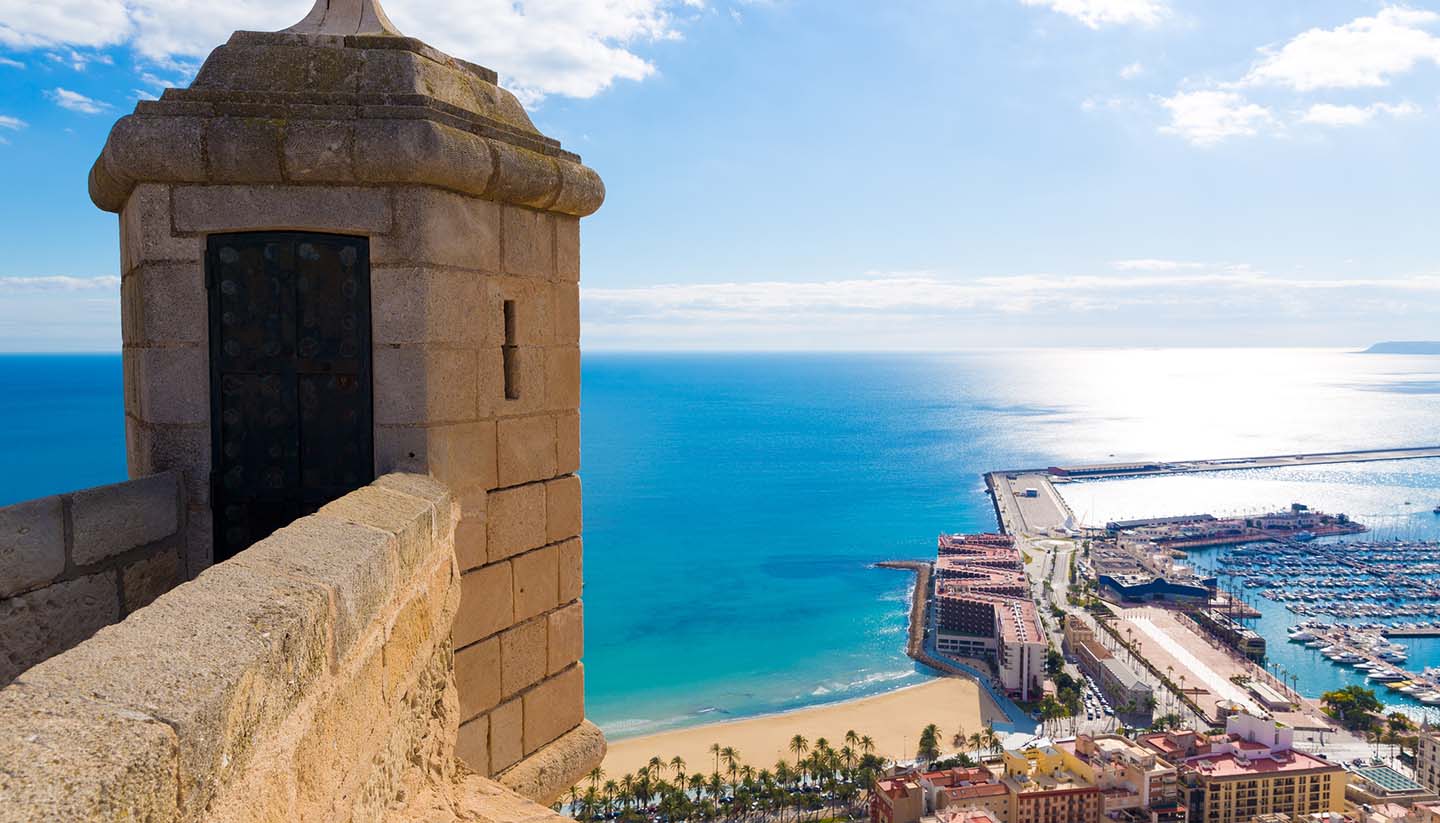Alicante History
For centuries a vital Spanish trading port, Alicante has transformed into a holiday hotspot.
The first hunter-gatherers moved here from Central Europe between 5000 and 3000BC.
By 1000BC, Greek and Phoenician traders had arrived in Spain. The Greeks named the area Akra Leuke (White Peak).
But by the third century BC, rival armies from Carthage and Rome began to invade and fight for control of the Iberian Peninsula. Alicante was eventually captured by the Romans, who were to rule for another 700 years.
The Moors conquered Alicante in the second half of the eighth century, and the Castilian crown only took it back in 1246. In 1308, it was incorporated into the Kingdom of Valencia. Alicante became a major Mediterranean trading port.
In 1691, under the reign of Charles II, the French Armada bombed the city for seven consecutive days. The War of Spanish Succession followed between 1701-14, in which Alicante’s castle was bombarded by British troops.
During the War of Independence in the early 19th century, the city became the provisional capital of the Kingdom of Valencia. But amid this period of conflict, Alicante slid into decline. It was only by the end of the 19th century that the economy improved.
After the Spanish Civil War broke out in 1936, Alicante was the last city loyal to the Republican government to be occupied by Franco's troops on 1 April 1939.
By the late 1950s and early 1960s, the tourism industry had begun to blossom. Alicante’s climate and beaches were major draws and the construction of new hotels, restaurants and bars benefited the economy.
Although there was industrial decline in the 1980s, the Port of Alicante has managed to become an important stop for cruises, bringing thousands of passengers to the city every year.
Today Alicante is the second-largest city in Valencia and a tourism honeypot.
Did you know?
• Evidence of Alicante’s earliest settlements has been found on Mt Benacantil, where Santa Barbara Castle stands today.
• The Roman name for Alicante was Lucentum (City of Light).
• Tennis player David Ferrer was born in Xàbia, just outside Alicante, in 1982.


